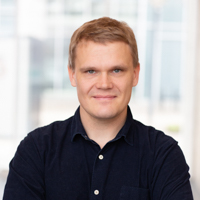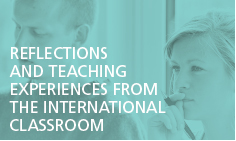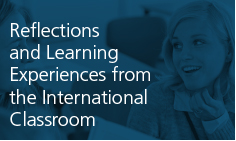Intercultural Communication
Under this heading, CIP explores a range of research questions related to the challenges and opportunities that emerge when individuals from different sociocultural and linguistic backgrounds come together to work on shared projects, whether it be research, education or other activities at the university.
Research areas
English is often used as a shared lingua franca to facilitate communication between speakers of different languages at the university, and this particular use of English – and the challenges and opportunities it presents for communication – is a central research area at CIP.
Another closely related research area concerns how multiple languages can be used for educational purposes through translanguaging. Translanguaging refers to the use of multiple languages in educational settings, and at CIP we explore how this practice can be used beneficially as part of learning and teaching practices in the international classroom.
As an additional research theme related to intercultural communication, CIP researchers take an interest in how collaboration is established and sustained in what we refer to as transient multilingual communities (www.tmc.ku.dk). This research area is highly relevant for the internationalised university where many social groups tend to be relatively short-lived, but it is also something that we explore in settings outside the university.
Project on Transient Multilingual Communities (TMC)
This research project, funded by The Danish Council for Independent Research (2016–2019), focused on interaction in transient multilingual communities – TMCs for short – defined as social configurations where people from diverse sociocultural and linguistic backgrounds come together (physically or otherwise) for a limited period of time to work on a shared activity. By identifying how successful collaboration is achieved in transient multilingual communities, one of the aims of the project was to develop suggestions for how activities in such settings can be organized and supported in order to achieve the desired goals. The project included collaboration with a number of external partners and was concluded by a public workshop on collaboration in culturally and linguistically diverse projects.
You can find more information on TMC project website.
Reflections from the international classroom
As part of the university-wide strategic initiative at UCPH, "Internationalisation and Language Skills", we explored how some of the central opportunities and challenges of 'the international classroom' can effectively be addressed from an educational perspective. The project resulted in two booklets reporting on teaching and learning experiences from the international classroom.
You can download the booklets from the project website.
Much of the research within this area is based on linguistic ethnographic case studies, which involves participant observation, audio and video recording of day-to-day practices, and interviews with participants. This approach allows us to get a comprehensive understanding of the particular educational programme, research group etc. under study.
Depending on the research questions asked, we also rely on survey-based methods and discourse analysis of language policy related documents.
We frequently engage in collaboration with university internal partners as well external partners in the area of intercultural communication. As illustrated by the cases above, we welcome research-oriented collaboration as well as collaboration on more hands-on activities designed to address issues related to intercultural communication in international settings.
We invite collaboration with all units at the university of Copenhagen – from faculties, to individual research groups and administrative units – on questions related to intercultural communication.
Holmen, Anne. 2019. Translanguaging Pedagogy. In J.-O. Östman and J. Verschueren (eds.), Handbook of Pragmatics, 22: 49-58. Amsterdam: John Benjamins.
Kappa, Katherine. 2019. Emergence in a Transient Social Configuration: A Linguistic Ethnographic Study of How Strangers Establish Practices for Working Together within International Development. PhD thesis. Centre for Internationalisation and Parallel Language Use: University of Copenhagen.
Nissen, Camilla Falk Rønne. 2019. Blind spots of internationalization of Higher Education Lived experiences of students in three versions of the international classroom. PhD thesis, Department of Nordic Studies and Linguistics: University of Copenhagen.
Mortensen, Janus. 2019. ‘Lingua Franca Scenarios’. In The Routledge Handbook of Linguistic Ethnography, edited by Karin Tusting, 1st ed., 299–311. New York: Routledge. https://doi.org/10.4324/9781315675824-22



